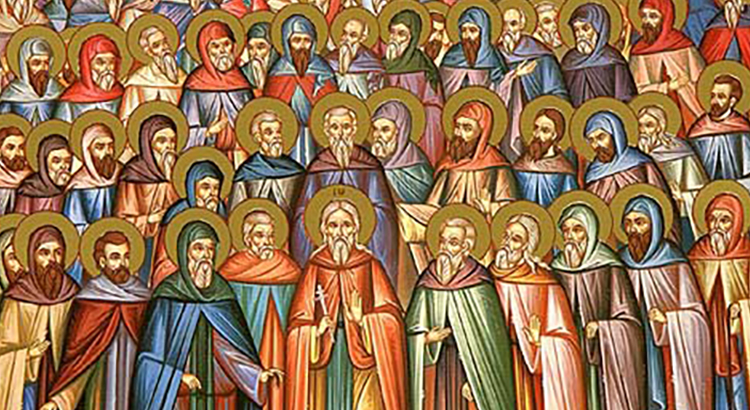Memory of the Saints and the Prophets
Reading of the Word of God
Praise to you, o Lord, King of eternal glory
You are a chosen race,
a royal priesthood, a holy nation,
a people acquired by God
to proclaim his marvellous works.
Praise to you, o Lord, King of eternal glory
Isaiah 49,8-15
Thus says Yahweh: At the time of my favour I have answered you, on the day of salvation I have helped you. I have formed you and have appointed you to be the covenant for a people, to restore the land, to return ravaged properties, to say to prisoners, 'Come out,' to those who are in darkness, 'Show yourselves.' Along the roadway they will graze, and any bare height will be their pasture. They will never hunger or thirst, scorching wind and sun will never plague them; for he who pities them will lead them, will guide them to springs of water. I shall turn all my mountains into a road and my highways will be raised aloft. Look! Here they come from far away, look, these from the north and the west, those from the land of Sinim. Shout for joy, you heavens; earth, exult! Mountains, break into joyful cries! For Yahweh has consoled his people, is taking pity on his afflicted ones. Zion was saying, 'Yahweh has abandoned me, the Lord has forgotten me.' Can a woman forget her baby at the breast, feel no pity for the child she has borne? Even if these were to forget, I shall not forget you.
Praise to you, o Lord, King of eternal glory
You will be holy,
because I am holy, thus says the Lord.
Praise to you, o Lord, King of eternal glory
Right after the second song of the servant of God (Is 49:1-6), the book of Isaiah describes Israel's return in their land and the rebuilding of Jerusalem. It is a proclamation of joy and hope that involves all creation. All humankind, the heavens, the earth and the mountains are invited to rejoice together because the Lord has not tired of his people, did not forget them, and did not abandon them even when they went far from him. God's love is steady, eternal and strong. And it is the Lord himself who approaches again and reminds them: "In a time of favour I have answered you" (v. 8). We can say that the "time of mercy" is the whole history of Israel, and also ours. After a period of purification and exile, the Lord is willing to "restore the land," to gather together again the scattered children of Israel. And he gets close to his people, not as a majestic and unforgiving judge, but as "He who has mercy;" as a tender mother who takes care of her children and is moved for them. It is such an elevated and extraordinary love that it is compared to a mother's love: "Can a woman forget her nursing-child, or show no compassion for the child of her womb? Even these may forget, yet I will not forget you" (v. 15). How can we not be moved in front of a God who is so ready to mix with our story, even of sin? And as if it were not enough, he went beyond with the incarnation of his own Son. The apostle Paul will write: "Indeed, rarely will anyone die for a righteous person-though perhaps for a good person someone might actually dare to die. But God proves his love for us in that while we still were sinners Christ died for us" (Rom 5:7-8). We will contemplate this shortly, when he will die on the cross for us.
